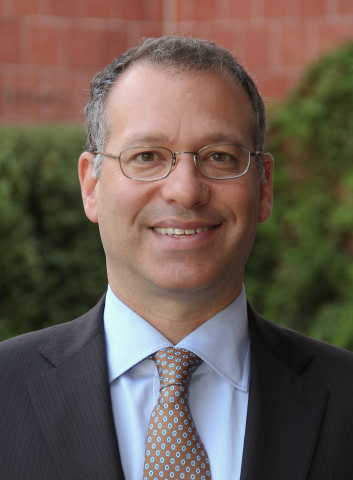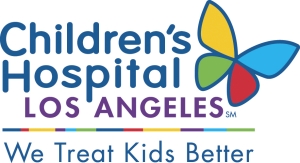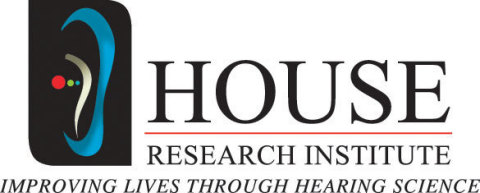LOS ANGELES--(BUSINESS WIRE)--House Research Institute (HRI) and Children’s Hospital Los Angeles announced today final approval of grant funding by the National Institutes of Health (NIH) National Institute on Deafness and Communications Disorders (NIDCD) for a major five-year, FDA-approved clinical trial of the auditory brainstem implant (ABI) in children.
“We are grateful to the NIDCD for funding our study at House/Children’s Hospital, which represents the first time the NIDCD has funded a pediatric ABI clinical trial,” said Eric P. Wilkinson, MD, co-principal investigator, House Research Institute, lead physician on the study, and associate, House Clinic.
Marc S. Schwartz, M.D., ABI neurosurgeon and investigator, and neurosurgeon at House Neurosurgical Associates at the House Clinic, agreed. “The clinical trial grant provides us with vital funding to begin phase one of our surgical trial of the pediatric ABI in the U.S.”
Mark Krieger, M.D., pediatric neurosurgeon and chief of medical staff, Children’s Hospital Los Angeles, and Billy and Audrey Wilder Endowed Chair in Neurosurgery, completes the surgical team. Study surgeries will be performed at the Children’s Hospital. “We are extremely excited to bring this revolutionary technology to Children’s Hospital. We are especially looking forward to offering this innovative procedure to provide sound to deaf children in the United States,” Krieger said.
Children considered for the clinical trial must have congenital bilateral deafness resulting from a malformed or non-existent cochlea or hearing nerve. Such patients cannot receive hearing benefits from a hearing aid or cochlear implant. Children with cochlear implants that have not provided benefit are also suitable candidates for the study. Ten U.S. children will have their surgical and audiological care provided by the trial grant.
The ABI was developed at HRI in the late 1970s and is the world’s first successful prosthetic hearing device to stimulate neurons directly at the human brainstem, bypassing the inner ear and hearing nerve entirely. More than 1,000 adults worldwide have received the ABI, led by physicians of the House Clinic.
The goal of the study is to establish the safety of both the ABI and the delicate brain surgery procedures required for its successful implantation for American children. To date, children who have been implanted with ABIs outside the U.S. have demonstrated potential to understand speech, and five U.S. children who were implanted in Europe in recent years receive regular follow-up by the pediatric audiology staff at HRI’s CARE (Children’s Auditory Research and Evaluation) Center in Los Angeles.
“For the children we have been evaluating in the CARE Center, communication outcomes have been shown to vary. However, we are impressed by the rate at which some of these children are learning to recognize speech without visual cues,” said Laurie Eisenberg, Ph.D., co-director, House Research Institute’s CARE Center, and audiologist and co-principal investigator on the grant.
An example of the promising communication results of the pediatric ABI is the story of Nathan Goss: Implanted in Italy in 2008 at the age of 3, Nathan was one of the first U.S. children to receive an ABI. According to his parents and HRI’s CARE Center clinical team, Nathan, who is now 7 years old, is communicating well enough to be successful in 2nd grade in at mainstream elementary school.
Click to view the Nathan Goss story – a video interview of the 5-year progress of a pediatric ABI patient.
Patient inquiries: Dr. Eric Wilkinson (213-483-9930, ewilkinson@hei.org), Dr. Laurie Eisenberg (213-273-8021, leisenberg@hei.org)
About Children’s Hospital Los Angeles
Children's Hospital Los Angeles has been named the best children’s hospital in California and among the top five in the nation for clinical excellence with its selection to the prestigious US News & World Report Honor Roll. Children’s Hospital is home to The Saban Research Institute, one of the largest and most productive pediatric research facilities in the United States, is one of America's premier teaching hospitals and has been affiliated with the Keck School of Medicine of the University of Southern California since 1932. For more information, visit www.chla.org. Follow us on Twitter, Facebook, YouTube and LinkedIn, or visit our blog: www.WeAreChildrens.org.
About the House Research Institute
House Research Institute, formerly House Ear Institute, is a nonprofit 501(c)(3) organization dedicated to improving the quality of life for people with hearing loss and related disorders through scientific research, patient care, and the sharing of knowledge. Institute scientists research the auditory system, at the level of function, as well as at the cellular, molecular and genetic levels. We also explore the neurological interactions between the auditory system and brain, and study ways to improve auditory implants, diagnostics, clinical treatments and intervention methods. We share our knowledge with the scientific and medical communities as well as the general public through our education and outreach programs. For more information about the House Research Institute, please call (213) 353-7078; e-mail info@houseresearch.org, visit www.houseresearch.org or follow us on Twitter, Facebook and YouTube.





